Search Results for: F word
While the box office helps screenwriters keep track of industry trends, which helps inform them when it comes time to write something, the majority of that data is useless. To screenwriters, I mean. There isn’t anything the average screenwriter can learn from Super Mario Brothers making a billion dollars. All movies in the top 10 live in Studio IP La-La Land, a destination reserved exclusively for the titans of the industry.
In order to learn something from the box office as a screenwriter, you want to track ORIGINAL projects. Projects that you could’ve written yourself, had you the foresight to do so. These are the projects that savvy screenwriters should be emulating and inspired by, as these are the scripts from screenwriters that actually get made.
Today I’m going to list the top 10 original projects, ranked by worldwide box office take, and tell you what you can learn from each of them. I’m sure there will be some comments about the underwhelming box office take of some of these films. But let’s keep things in perspective. M3GAN, the number one original movie of the year, cost 1/20th the budget of Super Mario Brothers, the number one overall movie of the year. When you take that into consideration, you realize these box office performances are a lot better than they first look.

M3GAN
Genre: Horror
Domestic: 95 million
Worldwide: 176 million
Lesson: I confess I did not see M3GAN’s success coming. I thought the living doll horror story had been done to death (see what I did there?). They couldn’t even get a better known doll franchise, Child’s Play, to drive ticket sales. Why would I think rando M3GAN would be able to? But if there’s anything M3GAN’S success reminds us, it’s that horror is the go-to genre if you’re a spec screenwriter who actually wants to make money. It honestly can’t be beat. And looking back at previously successful horror templates is a great starting point for coming up with an idea that gets buyers salivating.
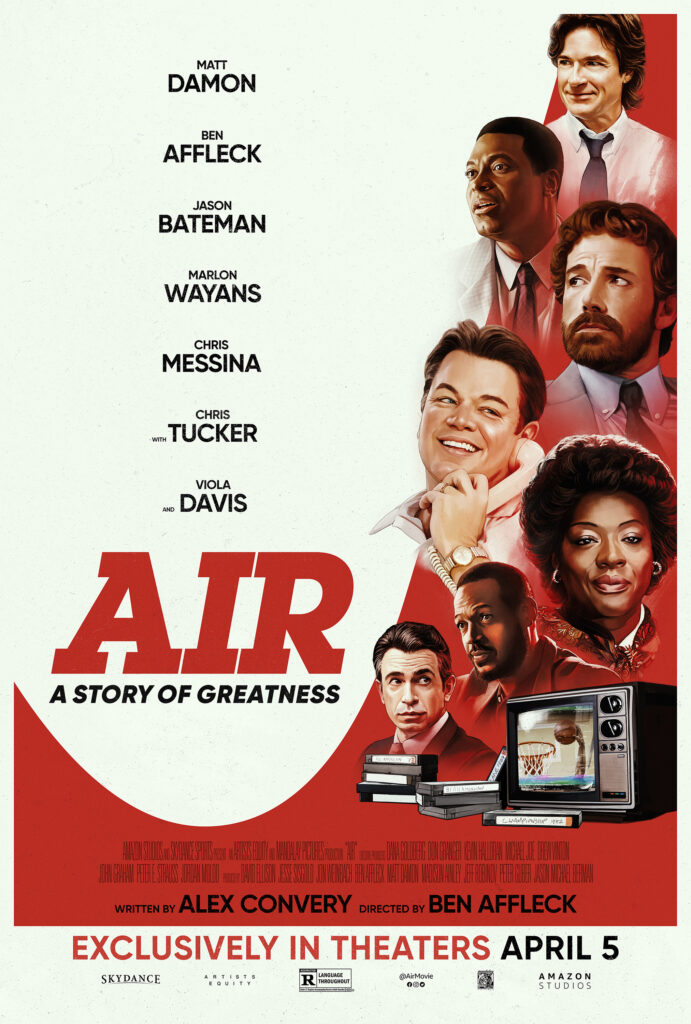
AIR
Genre: Sports Drama
Domestic: 52 million
Worldwide: 90 million
Lesson: Yet another savvy business idea is to mine true sports stories for concepts. They usually do well. Weirdly, they all do well on the Black List (I guess because all those assistants are big sports fans), further improving the chances of them getting purchased. Air was a departure from the usual formula, though, since it was less about the on-field stuff and more about what happens behind the curtain. The hack the writers are using here is that they know a lot of actors love sports. And they know those same actors are either too old or not in good enough shape to play professional athletes. But anybody can play a schlub in a suit. If you make that schlub talk a lot, you’re going to find a big actor who wants to play him. That big actor is the start of a flashy package that’s going to make sure your movie gets a big marketing push.
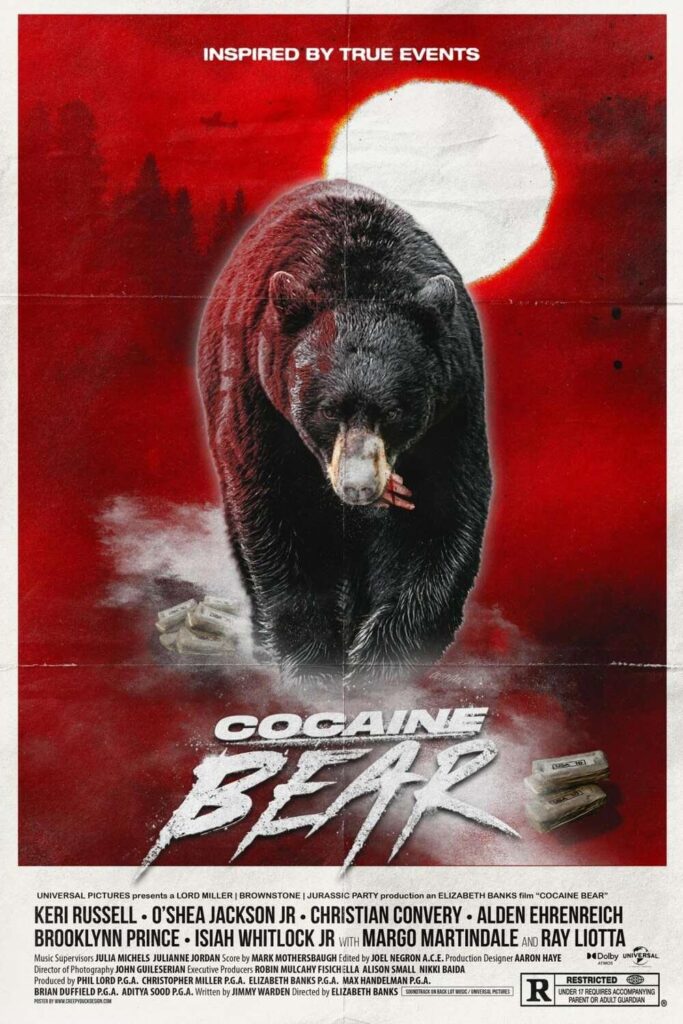
COCAINE BEAR
Genre: Comedy/Horror
Domestic: 64 million
Worldwide: 87 million
Lesson: Cocaine Bear is an example of a low-key growing trend in concept creation: viral concepts. These are concepts that either already went viral on social media (“Zola”) or the ideas are so wacky, the producers are banking on the fact that the movie itself will go viral, which achieves that all-important awareness, and also saves some money on the back end of the marketing budget. That was the plan here, although it’s difficult to tell if it was successful or not. Cocaine Bear landed in that monetary zone where you can’t call it a success or a failure. Which means even these newer flashier ways to construct concepts are susceptible to the same roll of the roulette wheel that movies have had to deal with since day 1 of the business: You never know what’s going to click with audiences.
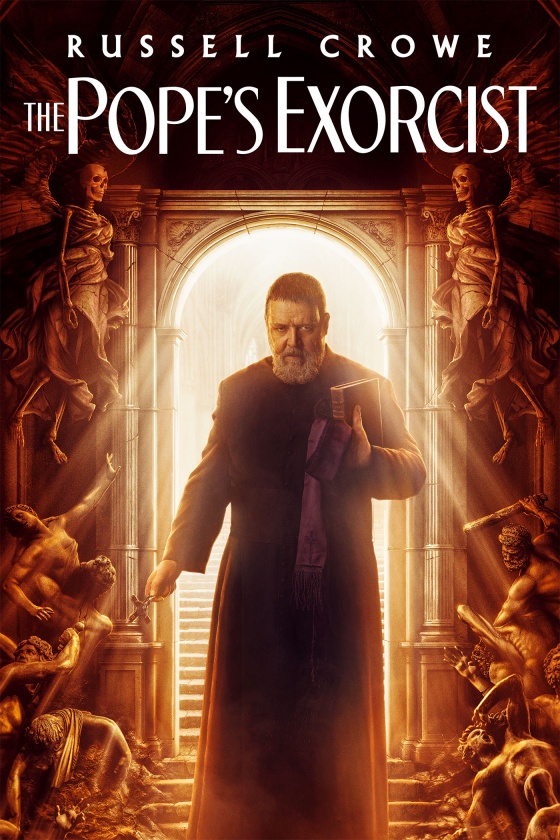
THE POPE’S EXORCIST
Genre: Horror
Domestic: 20 million
Worldwide: 74 million
Lesson: This was based on a book but I included it because it’s still an idea any writer could’ve come up with. You don’t even need the book to write about it, since it’s based on a real person. One of the most dependable horror specs you can write is an exorcist script. If I had any interest in exorcisms, I would be writing one of these every month. How dependable is the genre? Well, the script doesn’t really have a hook. I guess it’s kind of cool that the exorcist works directly for the Pope. But it’s not like the Pope is possessed. That would be a hook. Our exorcist still exorcises normal people, like every other exorcist. In other words, even without a hook, this movie made 74 million worldwide, and that’s all because of one word: EXORCIST.

65
Genre: Sci-fi
Domestic: 32 million
Worldwide: 60 million
Lesson: When people think of this film, they think, “Loser.” But it’s actually a winner. Every movie on this list is a winner because it’s an original idea that got made. Which is what most of you are trying to accomplish. 65 was actually a good idea. A couple of people crash land on earth during the dinosaur era just hours before the famous dinosaur-destroying asteroid arrives. Unfortunately, it made a couple of critical creative mistakes that tanked its RT score (main characters were, inexplicably, aliens and the tone was too dour). Since original movies are more dependent on good reviews than studio-backed mega-franchises, 65 didn’t survive its weak critical reception. To really take advantage of mid-budget sci-fi, you have to keep things here on earth and in the present. District 9, Arrival, and the upcoming The Creator. I still contend that 65 was a cool idea. But mass audiences tend not to like this story setup for some reason (they rejected “After Earth” as well).
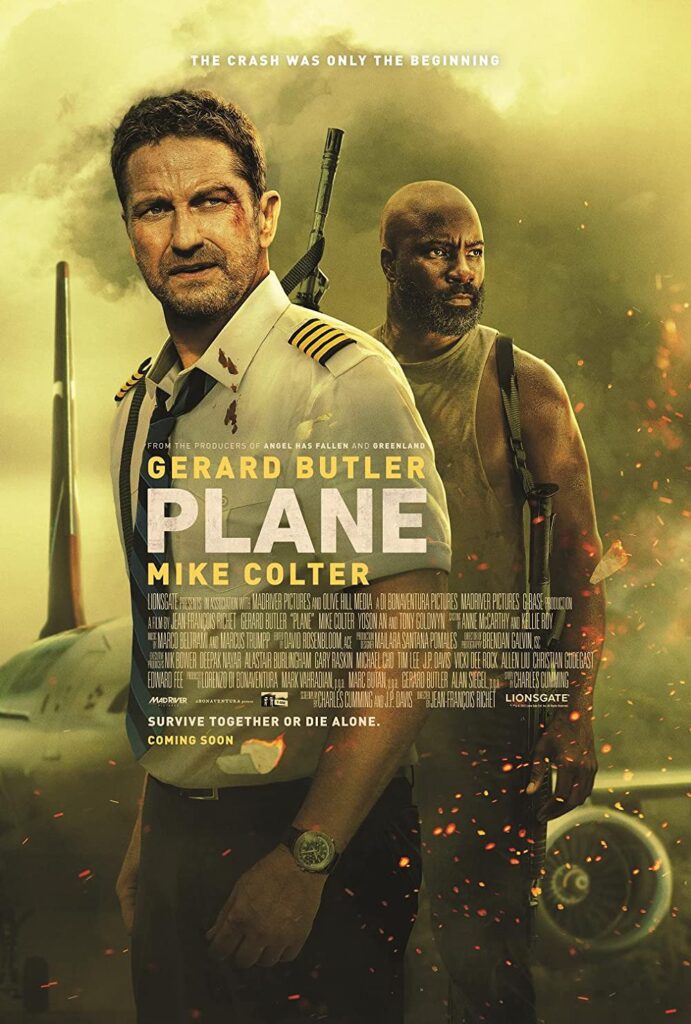
PLANE
Genre: Action/Thriller
Domestic: 32 million
Worldwide: 52 million
Lesson: The great thing about these movies is that they always get made. These Thriller-Action B-movies might as well be printed on the same documents that authorize the financing transactions for production because that’s how dependable they are. With that said, you are going after the same group of actors here (Gerard Butler, Liam Neeson, Jason Statham, etc.) and it DOES help if you can give them anything unique. It’s very common for them to say, “I already played this part.” It’s why Statham got so excited to do The Beekeper. Sure, in the end, money talks. Neeson has done the same role for the last 20 movies. But what I’m saying is, you gain yourself a little bit of an edge if you not only come to the actor with an offer, but come to them with an offer and a role they haven’t gotten to play yet. Gerard Butler had not played a pilot yet. And that was all he needed.
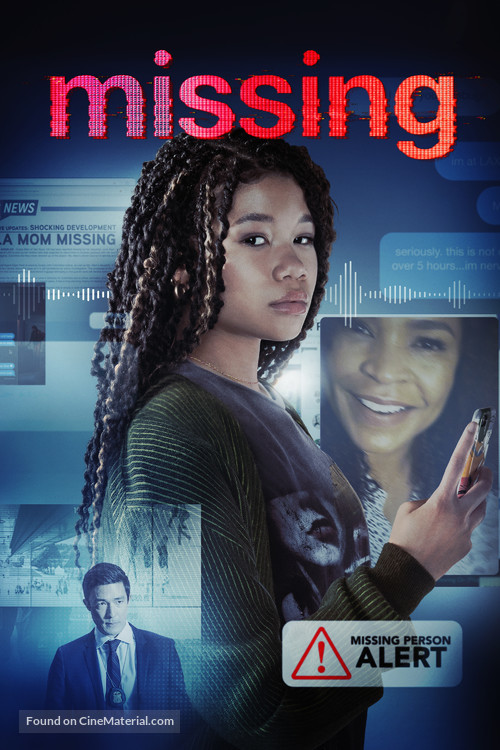
MISSING
Genre: Thriller
Domestic: 32 million
Worldwide: 49 million
Lesson: Timur Bekmambetov is THE GUY for these computer-based movies. I know a writer who’s writing one for him right now. And since they’re so cheap to make, I see Bekmambetov’s production company continuing to spit them out until they squeeze every dollar out of the sub-genre. Just make sure that you keep the story moving, which Missing does an AMAZING job of. It isn’t just a thriller in name. It’s thrills every second. Remember that the main character is sitting down the whole movie (or most of it). Which is why you want the story to have extreme urgency and stakes. Cause if someone is sitting down the whole movie in front of a computer and their goal is weak and they have as long as they want to achieve that goal? That’s a script disaster waiting to happen.
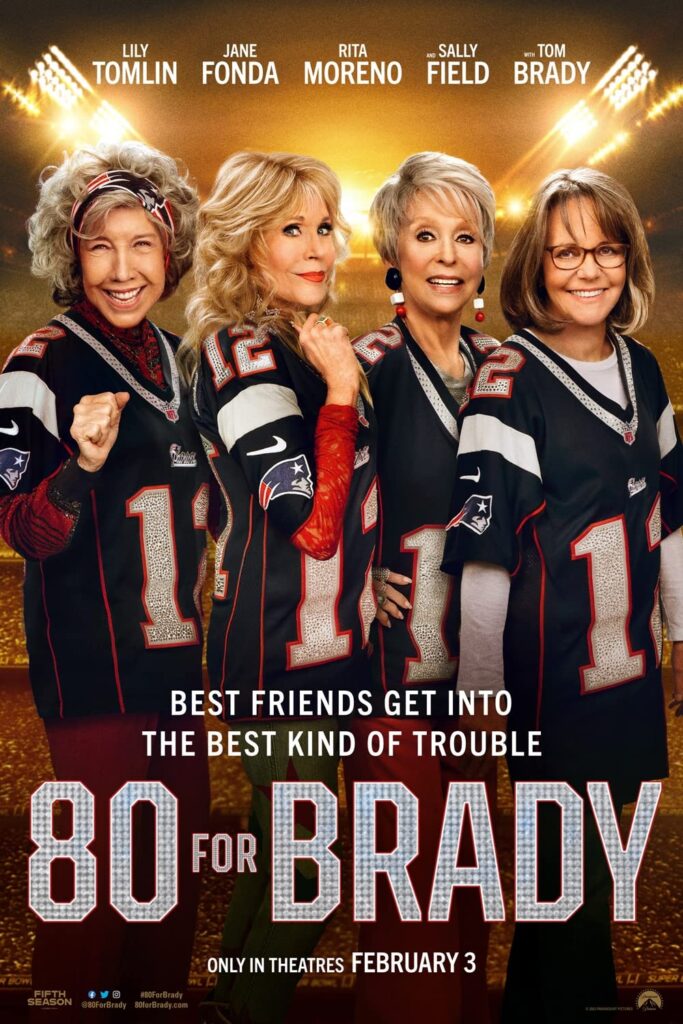
80 FOR BRADY
Genre: Comedy
Domestic: 40 million
Worldwide: 40 million
Lesson: It may not be my thing. It’s probably not your thing either. But the 65+ female demographic has been known to come out for these movies. The formula right now is comedy + several older women. But that could change and be centered around 2 older women, or even 1, if she’s interesting enough. If you have a really good comedy idea for the older female demographic, it may be worth writing it just because this is one of the least competitive sub-genres out there. Very few writers are writing them. So if you had something good, you could sell a script.

RENFIELD
Genre: Comedy/Horror
Domestic: 17 million
Worldwide: 25 million
Lesson: What I’ve found with horror comedies is that there’s a segment of writers who love to write them and a segment of readers who love to read them. But when you get to the actual theater, not a lot of people like to come to them. The target demo for this genre combo is usually people bored at the end of the weekend who just want to throw on something mindless. Which is why this movie bombed. Plus, I think it was too weird. The comedy angle was odd – that Dracula’s assistant had powers of his own. It didn’t really make sense. That’s script suicide right there – when your main character’s unclear.
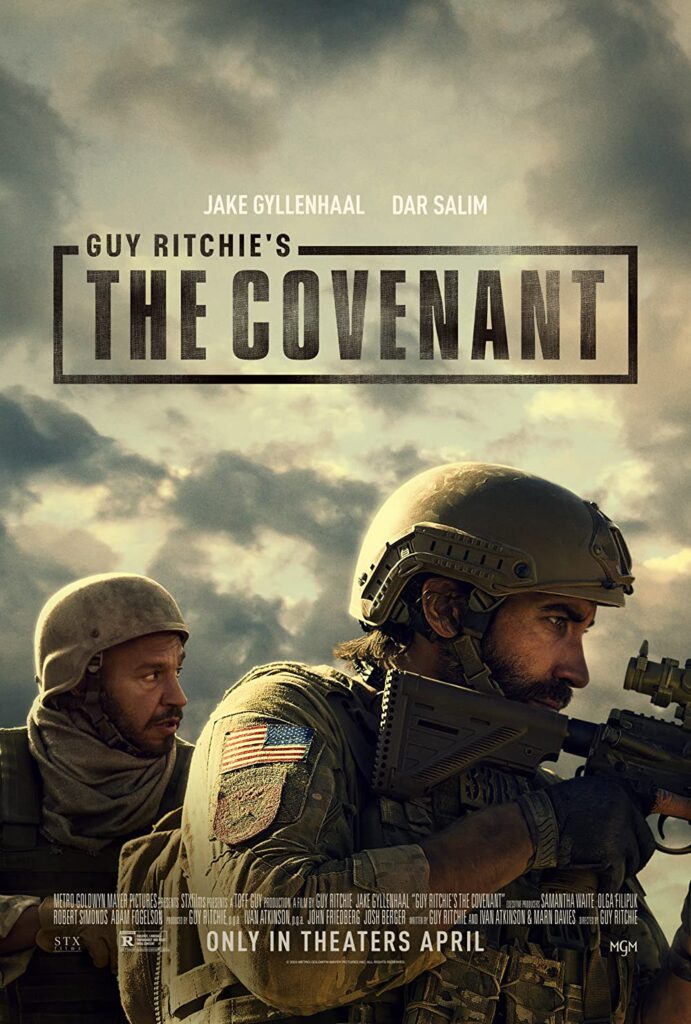
THE COVENANT
Genre: War/Action
Domestic: 16 million
Worldwide: 18 million
Lesson: These movies tend to play well to conservative audiences. This one was about a guy carrying another guy across the battlefield for a long distance. But it’s a tough genre to hit the bullseye with. American Sniper showed what was possible at the box office. Lone Survivor did well. Hacksaw Ridge did solid. So you would think this would’ve done better. What was the difference? Out of these four films, only The Covenant was not based on a true story. The thing with these conservative-leaning war stories is that the Rust Belt idolizes these soldiers. They’ve been celebrating them long before anyone made a movie about them. You could say that they’re conservative IP. So I think that’s the trick if you’re going to write one of these. Making it completely fiction, especially with such a weak hook (carrying a guy across a battlefield), was the stake in this movie’s box office heart.
Get a Script Consultation With Carson for $50 OFF! – In addition to logline consultations (just $25!), I do full screenplay consultations, pilot script consultations, outline consultations, first act consultations. Anything you need help with, I can help! If you mention this article anytime this week, I will give you 50 dollars off a feature or pilot consultation. :). E-mail me at carsonreeves1@gmail.com
Genre: True Story
Premise: The true story of the rise and fall of the Blackberry, a handheld internet device that become a phenomenon, only to get wiped out by the biggest company in the world.
About: Blackberry is the surprise movie of the year so far. It’s the little film that could. Glen Howerton, who’s famously played Dennis for the last 15 seasons on It’s Always Sunny in Philadelphia, has transformed himself for the opportunity to play Jim Balsillie, a part that is getting him tons of acclaim. Matthew Miller, who wrote the script for director Matt Johnson, didn’t have a single produced credit to his name until now.
Writers: Matt Johnson and Matthew Miller (based on the book by Jacquie McNish and Sean Silcoff)
Details: 2 hours long
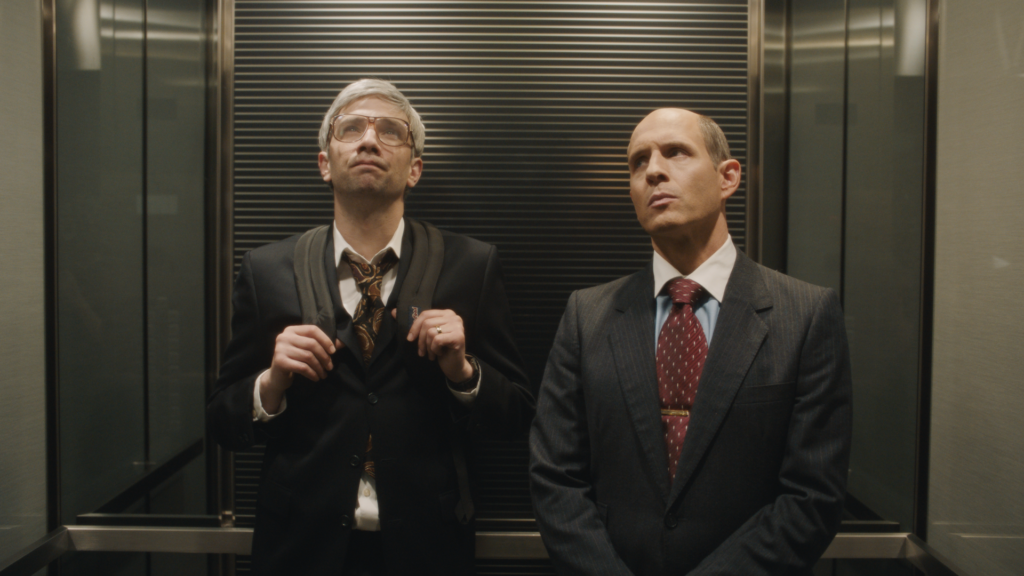
I know, I know.
Spider-Man: Across the Spider-verse just made all this money. Which means it’s the movie I *should* be reviewing today. I give Spider-verse all the props in the world. The first movie made 35 million opening weekend. This one made 120 million. That’s got to be the biggest percentage increase in box office sequel history.
But there’s another verse out there. A verse full of villains and heroes. A verse that tells one of the most classic tales in our history. If you squint, this verse isn’t that much different from Marvel or DC. I’m talking…….. about the Blackberry verse.
I kept hearing great things about this movie. It got great reviews. Great acting performances. Everyone’s tweeting about it.
But let me tell you why I’m really reviewing it. I’m reviewing it because every movie that gets made in Hollywood goes through a process. At the beginning, the script/project gets sent around town to all the A-listers. The biggest actors. The biggest directors. The hope is that you get one of those perfect A-list packages and now you’re really off to the races. You’ve got tons of buzz and hype behind you. And money! Lots and lots of money.
Unfortunately, most scripts don’t ever get the A-listers. And when they don’t get them, they go for the B-listers. The B-listers are still big time. Uncharted, with Holland, Wahlberg, and Rubin Fleischer directing? That was a B-Team. Movie did okay.
If you don’t get the B-Team, you can still end up with a solid movie via the C-Team. The stuff Gerard Butler is in, like Plane? That’s C-Team. And wherever you land, the corresponding amount of money you get, which crews you get, how many days you get to shoot – all of that ties back to who you can secure when you first go out with your project.
Sadly, the quality of your movie is linked to where you finish on that ladder. Your movie’s fate is determined before you shoot a minute of film.
So when a movie like Blackberry comes along and throws this equation back in the industry’s face – I’ll always celebrate that. Blackberry was working with the F-team. I guarantee the producers of this project were not setting up face time meetings at Shutters on the Beach in Santa Monica with Jay Burachel begging him to be in their movie. Ditto Glenn Howerton. I would go so far as to say they were probably their 30th-40th choices.
And yet, despite that, they still made an awesome movie. How awesome? You know how I was busting Air’s chops a few weeks ago because of how lifeless the directing was? We were in small offices on phone calls the entire movie? Blackberry operates in the exact same business world deal-making space, had 1/20th the budget that Air, and managed to look a hundred times bigger than that movie. It really is amazing what a difference directing makes.
If you don’t know the Blackberry story, this tiny company, Research in Motion, created by a couple of computer nerds, Mike Lazaridis and Doug Fregin, came up with the first handheld texting/e-mail device. With the help of hothead outsider, Jim Balsillie, to run the business, they quickly became the makers of the coolest gadget in the business world, the Blackberry.
The movie focuses on the complex relationship between Mike, who’s great with engineering but terrible with people, and Jim, who’s terrible with engineering and also terrible with people. But Jim gets things done. He’s the guy who doesn’t care if you like him. He’s a force that is determined to take whatever business he’s running to the top.
Blackberry had a meteoric rise because of two things. One, everyone was addicted to the fun little click-y keyboard that you got to send texts back and forth with. And two, they didn’t have any competition. They were the first company able to capitalize on handheld wireless data and no one else was even close.
Of course, we all know what happened next. Apple showed up. And Blackberry made a big bet on the fact that nobody would want to give up their “crackberry” keyboard for some screen that you lifelessly typed on. The final act of “Blackberry” shows the company desperately trying to adjust to this new competitor even though they all know, deep down, that their product is dunzos.
You guys know I’m no fan of true stories and biopics.
With that said, the rise and fall of a person or a company is a very strong engine to write a story with. Because think about it. We all love to see the rise of something. It’s exciting to see someone get to the top, especially if we know beforehand that they do get to the top. Cause we have that fore-knowledge that the characters don’t. And we’re excited for them to reach the mountain top we’re waiting on.
And then, we all love a train crash as well. We all love the sinking of the Titanic. We can’t wait to see it. It’s part of our nature as human beings. So we like *that* part of the story as well – the fall.
In general, every story should be either rising or falling. That’s what keeps the story in motion. Where you run into trouble is if you’re staying neutral. You can stay neutral in a story for a little while. But not for long. The viewer wants to either start rising again or falling again. They need to be in motion.
So, plot-wise, this script was good to go.
The only thing left to make a great movie was characters. Glen Howerton’s, Jim, was fun to watch. He was, himself, an engine. He demanded that the story move. So we always enjoyed being in scenes with him because we knew he was going to be pushing other people to do things. Which results in conflict, which results in drama, which results in entertainment.
Plus, Howerton just had so much fun with the role. He knew this was his one shot at becoming a serious actor. And he took advantage of it. I don’t know if this movie has the financial backing to put together an Oscar campaign for Glen. But I wouldn’t be surprised if he got nominated.
The only downside of Jim is that Mike and Doug couldn’t possibly live up to him. Mike was so internal. He was so frustrated and could never quite get the right words out. In a way, that made me frustrated whenever he came onscreen. I wasn’t enjoying his character so much as enduring it.
And while Matt Johnson, who played Doug, exhibited the single greatest clueless expression I’ve ever seen in a film, that’s all he brought to the table. To be honest, it felt like an actor who wasn’t quite ready for this big of a role.
With that being said, Blackberry is such a win for movies. Like I said, it’s a feel good story of a movie that nobody was supposed to hear about. For it to be getting these great reviews and all this buzz, it’s just cool to see.
[ ] What the hell did I just watch?
[ ] wasn’t for me
[xx] worth the stream
[ ] impressive
[ ] genius
What I learned: If you’re going to write a true story or biopic, something with a clear rise and fall will do a lot of the work for you as a storyteller. You’ll always be in motion. Your only challenge will be making sure all the characters are compelling to watch. If you have that combo, your script will be unstoppable.
 “I want the truth!”
“I want the truth!”
Every time I put the month’s logline winners up for Logline Showdown, I always get a dozen comments that amount to, “THIS IS THE BEST YOU HAVE????” I get it. It’s the internet. We want perfection. We want the posts on our terms. I do it as well on other sites.
But, just so you have more context, I want you to see the loglines that aren’t making it so you can better appreciate the ones that do. Because it’s hard to come up with a good concept and it’s hard to write a good logline. I think Scott said this – just being able to come up with a sentence that sounds normal is difficult. Much less one that effortlessly conveys a compelling movie idea.
For those interested, we do a Logline Showdown every month. Send in your title, genre, and logline. I pick the five best. You guys vote for your favorite. The logline that gets the most votes gets a script review the following week. We’ve found several good scripts already. Let’s find some more! Here are the details for the next showdown…
JUNE LOGLINE SHOWDOWN!
When: June 23rd
Deadline: June 22nd, 10pm Pacific Time
Where: e-mail all submissions to carsonreeves3@gmail.com
What: include title, genre, and logline
If you’re struggling with your loglines, you can always get a logline consultation from me. They’re 25 bucks. E-mail me at carsonreeves1@gmail.com and I’ll have feedback to you within 24 hours.
Okay, let’s take a look at some of the loglines that didn’t make it into the showdown and why. Actually, none of these loglines are bad. But they were all missing something. Let’s find out what those somethings were.
Title: Unwind
Genre: Dark Comedy/Mystery
Logline: Desperate for new material after her editor rejects her article, a high school journalist teams up with her ex-boyfriend to uncover a school conspiracy when she discovers a photo of a paraplegic kid standing on two legs.
Analysis: The first thought that went through my head when I finished reading this logline was, “So what?” The stakes don’t feel very high. Why do I care about a random kid who may have been faking his paraplegic-ness? In the writer’s defense, it’s a comedy. And the stakes for comedy scripts don’t have to be as high. But there’s something underwhelming about this mystery that’s preventing me from feeling that excitement I need in order to open a script. That’s not to say the script would be bad. If the writer’s got a really witty and sardonic voice, the script could work. But I’m just going off the logline and the logline isn’t giving me a big enough reason to care. This is one of those scripts that I’d read if someone else told me it was great. But it’s not a script that wins me over on the logline alone. Which is a good lesson for every screenwriter trying to write a spec screenplay. Try to win us over with your concept alone. It shouldn’t need any extra convincing.
Title: Kill and Make-up
Genre: Satire
Logline: Down on her luck and bearing the weight of her world, flight attendant Amanda meets Bailey, a solipsistic psychopathic serial killer, who might just be her key to happiness.
Breakdown: Fun title. Nice play on words. And the story is kind of intriguing. A love story with a serial killer. There’s some nice irony there. But it feels like it’s missing that element to put it over the top. Like the logline from a couple of months ago where the serial killer was done killing but then went to the engagement party of her rich fiancé and had to do everything within her power not to kill his insufferable family. There was more of a story there, more of a plot. This logline is an idea. “I fell in love with a serial killer.” But where’s the plot? What’s the end goal? Finally, I’ve included a lot of serial killer loglines on the Logline Showdown this year. And I just didn’t want to include another one so soon. That’s a tough reality about the industry. Sometimes you have a good idea but the producers you send the idea to just made a movie like that or they just started developing a movie like that. Your logline could just be bad timing. Which is one of many reasons not to take rejection personally.
Title: Influence
Genre: Horror/Comedy
Logline: A group of influencers stranded at the shoddy island resort they’ve been promoting is terrorized by a manipulative entity that wants to harness their immense reach.
Breakdown: There’s not enough meat on the bone here. We’ve got a group of influencers. They’re stuck together in some scary situation. This is a VERY COMMON setup right now. Lots of writers are starting with a similar premise to this. Which means you have to differentiate your idea somehow. An entity that “wants to harness their immense reach” is not enough of a differentiation. To be honest, I don’t know want that means. It’s not specific enough. A logline needs to place an image in the reader’s head. When you are vague, you are doing the opposite of that. We can’t imagine anything. And if we’re not imagining the movie, we’re not going to request your script. I would rewrite the second half of this logline and BE SPECIFIC.
Title: Wicked Morning Star
Genre: Horror
Logline: In 1986, two ambitious girls obsessed with Dungeons & Dragons, heavy metal, and Lucifer ritually sacrifice a wealthy classmate and attempt to conceal the crime as their friends gather for his birthday party in the basement where they’ve hidden his body.
Breakdown: When I read this logline, I have a couple of concerns. One, you’re asking us to root for two people who killed someone. There is a chance, of course, that you’ve made them sympathetic and the victim unsympathetic, so that we’re okay with the killing. But that’s the thing about loglines. There is no context. We don’t know for sure. Going off just the logline, I don’t want to give these killers my time. The other issue is that the idea feels small. I’m imagining this small basement, since all basements are small. I guess they’ve put him in a trunk or something. And the appeal of the story is, “Will someone find out?” But I only see that trick working for a few scenes, 30 pages at most. We’re not going to be on the edge of our seats on page 75, still wondering if Lucy is going to look inside that trunk and find the body. The gimmick will be up by then. So those two issues are the reason I didn’t feature this logline.
Title: The Men in White
Genre: Supernatural Thriller/Action
Logline: When Mikey McKay, a kind but dimwitted drug dealer, dies searching for his missing brother, the two mysterious Men in White appear to protect Mikey from the dangers of purgatory and guide him to the portal to Heaven before his soul disappears forever.
Breakdown: You don’t usually want to include character names in loglines. It tends to be a rookie move. Which means the reader’s going to assume you’re a beginner writer, which means they’ll be less likely to request your script. The exception is when your hero’s name is in the title (Forrest Gump, Jerry Maguire). But you should stay away from this if possible. From there, it’s too standard of a premise. I get pitched a lot of concepts where somebody dies and they have to do something before they can get to heaven. The more original the plot is between the death and getting to heaven, the more likely I am to request the script. This seems like a vanilla version of that journey. He has to avoid bad ghosty people and get to heaven. Feels like we’re missing that sexy “strange attractor” that amps an idea like this up.
Title: No Body Recovered
Genre: Horror/Thriller
Logline: After escaping a brutal police raid on his unhoused community, a wounded man flees downriver in search of his missing dog; desperate for survival, he accepts help from a local bowfisherman who unveils a sinister plan — remove the unhoused from his river one by one.
Breakdown: There may be something to this idea but the fact that I had to read the logline four times before I mostly understood it is a problem. First of all, “unhoused” is a weird word. I was annoyed that I had to look it up. I suppose it’s the latest politically correct way to refer to homeless people. But even if you get past that, this missing dog enters the equation out of nowhere. So I guess this is a “look for your dog” movie now? Then, also out of nowhere, a bow fisherman appears. That seems like a random character type to be introduced into this story. And then the bow fisherman wants to kill all the homeless people, I think? Or just scare them off? It’s a little unclear. But then he’s also going to help our hero find his dog? Even though he hates that our hero is homeless? Or does he not know he’s homeless and that’s why he agrees to help him? Or are you saying that, that’s the inciting incident of the story, in which case, they’re now mortal enemies? Our hero will look for his dog while the bow fisherman tries to hunt him? As you can see, the fact that there’s so much going on here makes it difficult to identify what’s happening. And the second a reader is unclear what the story is, THEY’RE OUT. They don’t give you a second chance. Cause the way they see it is: If you can’t be clear in one sentence, why would I expect you to write a clear 20,000 word story?
Title: 21 Shots
Genre: Slasher Comedy
Logline: On the eve of her sister’s wedding, a woman takes 21 shots to ring in her 21st birthday. When she wakes to a room full of dead friends, she must retrace her 21 shots to figure out the killer before the wedding begins… or the killer finds her.
Breakdown: Another confusing logline. I understood the story up to the point where she takes 21 shots to ring in her 21st birthday. So far so good. She then wakes up to a room full of dead friends. Okay, a mystery. It seems a little excessive but I’m still giving the logline a chance. Things fall apart with this segment: “she must retrace her 21 shots to figure out the killer.” How does one retrace 21 separate shots? “Hmm, I took my first shot over at the bed here. Then I took my second by the piano. Then my third in the bathroom.” Wouldn’t you be done with that investigation after five minutes? Also, how is that going to help her solve the mystery? If you get past that, you run into the logline’s biggest problem: who cares about making it to the wedding WHEN ALL YOUR FRIENDS ARE DEAD!!!!???? I’m pretty sure getting to the wedding is the least of your worries at that point. Not to mention, instead of figuring out where your 17th shot was, why not just call the cops? There are just too many questions that pop up with this logline.
Title: The Girl Who Lived
Genre: horror
Logline: A young woman must survive a night of horrific attacks both by the living and the dead when she sets out to discover why she was the lone survivor of a mysterious plane crash as a child.
Breakdown: Tal complains a lot that his loglines don’t get picked so I thought I’d extend him the courtesy of explaining why I didn’t pick his latest submission. To start, why isn’t “horror” capitalized? You want to put your best foot forward. It’s not a dealbreaker but it implies you’re not taking the submission seriously – that you’re rushing through it. — Like a lot of Tal’s loglines, this sort of feels like a movie but, at least for me, I’m having trouble connecting the first part with the second part. She’s going to finally solve the mystery of being the only survivor of a plane crash. So as soon as she looks into that, random living and dead people start attacking her? I don’t get it. The fact that it’s not one or the other (dead or alive) scatters the focus of the idea, weakening its impact. If it was just ghosts that went after her – preferably dead passengers she remembers from the flight – at least then there’s a logical connection between the first part of the logline and the second. But trying to solve a plane crash mystery and having dead and alive people all try to kill you – it’s just not a very eloquent idea. It feels messy. Blunt. Quickly cobbled together without any self-scrutiny. I commend Tal for putting these elements in his idea that are high concept and sexy (plane crash, ghosts). But neither of those elements connect to one another in a harmonious way, at least from how they’re presented in the logline.
Title: Parousia
Genre: Psychological Horror
Logline: An apprehensive pregnant couple, still haunted by a past miscarriage at the hands of a doctor, go to a remote midwifery for the perfect birth but strange occurrences and sinister undertones soon signal the experience may not be so idyllic after all.
Breakdown: This is a good example of an intriguing logline that falls apart in the home stretch. I see this ALL THE TIME. You get to the part of the logline that may actually seal the deal. Then you shroud it in a fog of mystery. I get why this happens. You’re thinking: “I must create mystery!” But that’s one of the more common misconceptions about loglines – that you want to be mysterious. You actually want to tell the reader exactly what they’re going to get. You do this because reading a script is a business proposition. People will take the time to read your script because they think it might make them money. It’s not an enjoyment proposition, like paying for a ticket to go see a movie. That’s a different type of pitch and, therefore, one where mystery can be strategically infused. Know the difference!
Title: Her Deafening Silence
Genre: Thriller
Logline: After a violent attack leaves her with a debilitating hearing disorder, a reclusive assault survivor fights to maintain her sanity as visions of her assailant and a distant, mysterious scream threaten her isolated existence.
Breakdown: You’re not giving us a movie here. You’re giving us a short film. I’m not saying that your script doesn’t have a full movie in it. But this logline? This logline implies a story that is, at most, 15 minutes long. A deaf person starts hearing a scream in the distance. Where’s the plot? Is it that the scream keeps getting louder? Closer? Okay. But screams happen all the time in horror movies. That’s not big enough to build an entire story around. I get the sense that there’s more that happens in this script. But then that needs to be in the logline. We need to be able to see the plot of the movie in order to gauge whether it’s something we’d be interested in.
Get a Script Consultation With Carson for $100 OFF! – In addition to logline consultations, I do full screenplay consultations, pilot script consultations, outline consultations, first act consultations. Anything you need help with, I can help! If you mention this article, I will give 100 dollars off a feature or pilot consultation to the first four people who e-mail me. :). E-mail me at carsonreeves1@gmail.com
Today’s short story receives such a bad rating, I had to revert back to Scriptshadow 1.0 to give it.
Genre: Apocalyptic/Drama
Premise: A college professor is annoyed by the death of a mid-level banker during the end of the world.
About: This is another Stephen King short story sale. It comes from the collection, “If it Bleeds.” It has Darren Aronofsky on board to produce (not direct). Two other stories from the collection have already been purchased. “Rat” by Ben Stiller and “Mr. Harrigan’s Phone” by John Lee Hancock.
Writer: Stephen King
Details: About 120 pages
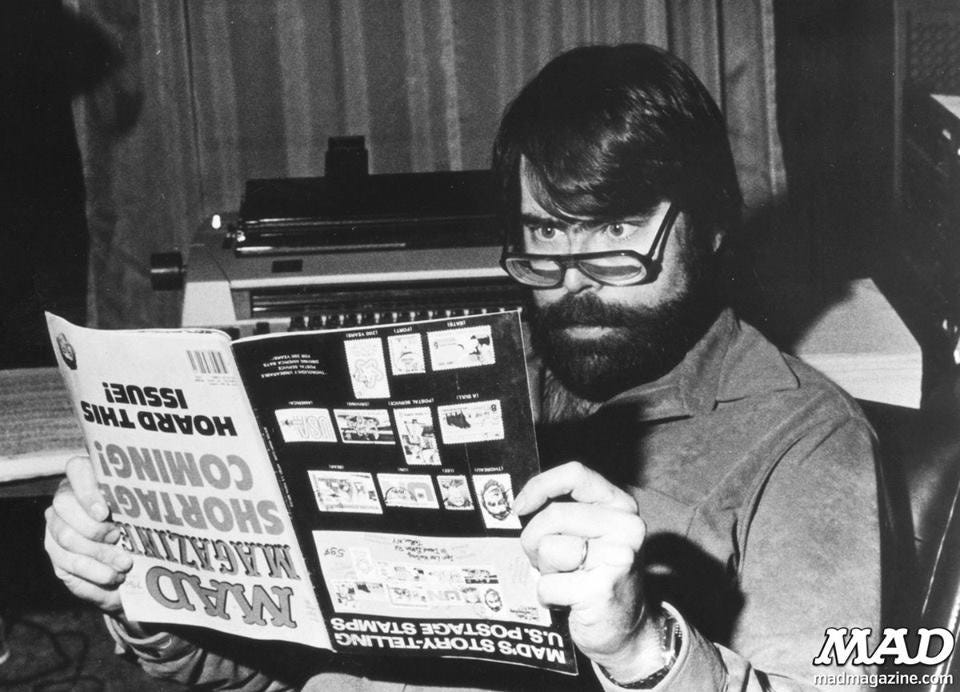
It used to be that, when you talked about Stephen King, you talked about what a great writer he was. Nowadays, when you talk about King, it’s usually because of some spat he’s having with Elon Musk on Twitter.
It’s kind of sad. But it hasn’t affected his ability to sell his content Hollywood. Almost every King story that gets written, gets optioned. The man has the Midas touch. Then again, nobody has seen The Life of Chuck Yet. When they do, it could end King’s career…. for good.
Marty is an English professor at a small college in New England. He’s dealing with the deterioration of the internet, which only works sporadically these days. This is because the world’s infrastructure has been falling apart over the last year.
California has fallen into the Pacific Ocean. Florida is, basically, gooey swampland. Food shortages mean that In and Outs are closing down (not in King’s story, just my personal guess). It’s bad, man.
Amongst it all, Marty is mesmerized by the local bank’s billboards and commercials that keep popping up promoting Charles “Chuck” Krantz, who has just retired after giving the bank 39 great years. Or they’re congratulating him for his life and dying at 39 years old. The story is so shabbily written, it’s not clear which of those is the case. But the point is, there are ads everywhere celebrating Chuck Krantz’s contributions and Marty is annoyed by it.
We then find out that Chuck is on a respirator because of a brain tumor. And then he dies. This sends us into Act 2, nine months prior, where an ignorant-to-his-sickness Chuck dances. That’s right. The second act is a dance.
Chuck goes downtown to work, stops in front of some guys playing the drums on the street. He decides to dance. Everyone cheers. Some girl hops in and dances with him. The song ends. They bask in the post-glow excitement. Then they go back to their normal lives.
The final act sends us back even further into Chuck’s life when he was a kid where we basically watch him grow up. We hit all the low-points, like his parents and grand-parents dying – uplifting stuff – before a semi-adult Chuck walks solemnly around the house his grandfather left him. The end.
In an industry that has fully embraced the short story and given out huge monetary rewards for writing these stories, The Life of Chuck has thrown its hat into the ring to win the “worst short story ever” contest.
I’m not exaggerating when I say this may be the worst short story I’ve ever read.
It’s bizarre because you pick up a Stephen King story and you expect to be a) entertained and b) learn something about the craft. A) I was the opposite of entertained. What I went through could better be categorized as torture. And b) The only thing I learned is that Stephen King doesn’t care about writing good stories anymore.
The first act of the story starts off well. The internet is barely working. There’s word that California is falling into the ocean. End-of-the-world scenarios are movie catnip. We moviegoers love them. I love them. So I was intrigued to see where this was going.
Then King leans heavily into, basically, a PSA about the environment. It was as if the story stopped and King, the activist, transported himself in. I remember back when King used to talk about theme in writing. He would write the best story possible then, while rewriting it, he’d search for a theme and place more emphasis on it. These days, he seems to be starting with the theme. His stuff just doesn’t work nearly as well with that approach.
The irony is that the first act was still the best part of the The Life of Chuck. Because at least in the first act, things are happening. The world is falling apart.
The second act is about a middle-aged man dancing. That’s it! That’s what 50 pages are about. A man, Chuck, is walking to work, happens to spot a drummer, starts dancing, is joined by a random younger woman, and they dance while everyone cheers. And that’s the second act!!

If you’re waiting for a point to emerge, get in line. I would not be surprised if King wrote this 120 pages short story in half an hour. Cause there is no fore-thought put into it. There are no setups or payoffs. None of what happens before connects to what happens after. It’s random to the extreme.
Then, the final act – the part of your story that’s supposed to go out with a bang – is just backstory!!!! Long drawn-out boring backstory. Parents died in a car crash (wow, that’s original. I only read about 50 scripts a year that have a car crash backstory). Grandparents die one at a time. And, in between, Chuck sits around so that King can fill us in on whatever other pointless moments in Chuck’s life he can think of.
This is baaaaaad, guys.
I understand that King’s name has weight in the business. But did they read this story??????? Cause this is the worst thing he’s ever written. And you’re going to put it out there for people to see who are going to make fun of you for the next 25 years for it.
Actually, I take that back. This isn’t bad in a fun way where people make fun of it. It’s bad in a sad way. In that way where, the second you finish it, you’ve forgotten in. Nobody will remember this movie for more than three minutes.
There’s this moment in the story where Marty is going to visit his ex-wife, gets to her house at night, then proceeds to notice that every single window in every single house as far down as you can see, all contain a reflection of the “Thanks Chuck” billboard.
It is not explained to us why this happens. It is not explained to us how it happens. It’s as if King’s 10 year old grandson stumbled into the room while he was writing, mumbled, “window reflection” and King just wrote the moment into the book without missing a beat. I cannot emphasize how sloppy and random every choice in this story was.
The only logical reason I can come up with for why they bought this story would be the first act. The first act is all about the world falling apart. California falls into the ocean. The South is a dust bowl. Florida is a swampland. Sinkholes are everywhere. There is no longer enough farmland which means people start starving. Worst of all, the internet stops working.
All of that stuff is very cinematic. So maybe they’ll use that as a jumping-off point for a different story than the one that is told here. Because if they bring in Chuck Krantz, they are signing this movie’s death warrant. Chuck Krantz is the worst character in American history. He will depress you, he will bore you, he will make you never want to read again.
One of the tell-tale signs of bad writing is when the reader stops reading, stares off into space, looks back down at the book, and says to himself, “What is this about?” I must have done that two-dozen times.
Fiction has hit a new low-point. So much so that I’m bringing back a retro rating to rate this script.
[x] Trash
[ ] wasn’t for me
[ ] worth the read
[ ] impressive
[ ] genius
What I learned: Backstory is non-story. Part of me thinks King is trolling us by making his climax the least interesting part of any book – backstory. But by putting it on display at such a critical juncture, it highlights just how little payoff backstory provides. Unless you have some sort of extremely unique and interesting backstory or event your main character has gone through that is IMPERATIVE for the reader to know in order for your movie to work, avoid backstory like the plague. Throw it in there in little bits and pieces (Ferris Bueller to Cameron on the phone: “You’ve been saying that since the second grade.”). But, otherwise, avoid it like you would avoid this book.

If I had to guess why Fast and Furious didn’t do boffo numbers this weekend (it came in at 67 million – Fast 7, six years ago, made 150 million its first weekend), I’d venture it’s for the same reason I chose not to see the film myself – It doesn’t look different enough from previous incarnations of the franchise.
In Fast’s defense, it becomes difficult to differentiate yourself when you’ve had nine sequels. But it is doable. When I look back at the Fast franchise, there are three things that have gotten me to watch their films. One: doing something different. I liked the Tokyo Drift angle cause they were trying to do something different from the first two films.
Two, they promoted an action scene that was so amazing, you couldn’t not go. That fuel robbery action scene on moving fuel trucks was one of the coolest action sequences I’ve ever seen in my life. It was also the best edited action scene I’ve ever seen.
And the last thing they do well is stunt casting. They bring in some name that bathes the entire franchise in a new exciting light. That was the case with The Rock. The Rock vs. Vin Diesel? Sign me up!
They went with choice number 3 again this time around but they crapped the bed with their casting. Jason Mamoa. I’ve taken naps more interesting than Jason Mamoa’s performances. Bless Jason. He seems like a genuine guy. But the man does not move any of the needles on the dashboard.
If they want to bring us back for Fast 11, they need to do all three. New fresh concept. Come up with the best action set-piece in the entire franchise. And give us the coolest stunt-casting ever. Maybe a de-aged Jean Claude Van Damme AND a de-aged Steven Seagall? I’m kidding. Or am I? (I’m not)
I’ve been keeping tabs on the Cannes Film Festival. And by keeping tabs, I mean keeping track of how long each standing ovation is. It’s tough to keep up. At one point, a random journalist came back from the bathroom, crossing in front of the audience, and ended up getting an impromptu 3 minute standing ovation.
Indiana Jones got a respectable 5 minute standing ovation but word on the street is that the movie is kind of a mess. Indiana is running up against the same issue Fast and Furious is, which is that you’re attempting to squeeze a new experience out of an old ratty towel.
But you know what? I DON’T CARE. Because it’s Indiana Jones and even though I got burned worse than twice-cooked toast with Kingdom of the Crystal Skull, there’s nothing quite like the Indiana Jones experience. I’m doing my best to avoid spoilers and I’m hoping that the de-aged Indiana Jones stuff figures out a way to get us some vintage Indiana.
On Saturday night, Killers of the Flower Moon got a NINE MINUTE standing ovation, a full six minutes more than Bathroom Guy. I’m bit a torn about this movie. As you remember, I loved the book. LOVED IT. It was so freaking good. And the trailer they just released? A-PLUS. Stunning. Best trailer all year. Maybe even the best in the last five years.
But listening to the press conferences of the movie, it seems like they’ve made a major change to the book. The story of the Osage is, no doubt, sad. But what balanced out that sadness was the investigation into who was doing the killing of these Osage members. The author had built this procedural element into the mix, which had us curiously turning the pages. And that made it exciting.
But, apparently, Scorsese took that out. Which has turned the movie into one giant sad-fest. Maybe even a moralizing sad-fest. If their plan here is to make people feel bad for things other people did 150 years ago? I don’t want to be rude but go walk barefoot in a room full of loose legos.
Sure, if you go that route, it gets you standing ovations and pats on the back from people within the industry, not to mention those back pats you’re giving yourself. But it leaves audiences feeling cold. No actual moviegoers want to see a movie designed to make them feel bad about themselves.
What I’m hoping is that this is just the media doing its media thing. They have to play up these narratives cause it makes them feel good about themselves. But the reality is, we moviegoers just want a good movie. That’s it! We don’t want to be preached to. So, hopefully, that’s what this movie is. Because I’m rooting for this film. I want it to be great. It’s such an interesting story. And I’m a sucker for a great ironic premise, which is exactly what this is.
I have a feeling it’s going to be a neck-and-neck Oscar battle between this and Oppenheimer. I can’t wait to see who wins.
Okay! I’m going to finish up with a quick script-to-screen breakdown of “Air.”
I LOVED the “Air” script. It made my top 25. What made the script so good was that it FLEW BY. It had a great underdog main character whose relentless determination gave the story incomparable momentum. You both loved Sonny Vaccaro and were swept up by his pursuit of Michael Jeffrey Jordan (whose face is never seen in the script or film – love it!).
For these reasons, I was more than excited to see what it looked like in movie form. I knew that, if it hit on all cylinders, it had the potential to be the next Jerry Maguire.
I probably shouldn’t have placed those expectations on it. No, the movie isn’t bad. But it’s not nearly as good as the script. And there is one big reason for that: It doesn’t look like a movie.
It looks like a student film.
I’m sorry but it does. This is Ben Affleck’s worst directing effort to date. And while Matt Damon may not have phoned it in, he occasionally barks it in from the other room.
The entire movie feels like it was done via a series of second takes. Not a single scene feels thought-through or lived in. You could practically hear the A.D. saying, “We’re running out of time. We gotta keep moving. You only get two takes for this setup!”
Matt Damon is giving us these perfunctory performances where you can sense that he hasn’t fully memorized his lines. Compare his acting in this movie to Good Will Hunting where you could tell he’d tried EVERY SINGLE ANGLE in every one of those scenes so he knew what worked best by the time the camera was rolling. Not even remotely the case here.
And where is the money? Show it to me!
Where’s the money on the screen?? That’s one of the ways you can tell a good director. They can make a movie look amazing for way less money than they wanted. This film is the opposite! It cost 90 million dollars! Yet it looks like a 15 million dollar film!!! They shot it in a bunch of rooms! I could’ve done that.
The one set they built – Nike headquarters – is dark, boring, and empty. Where are the people??? Could you not afford extras? Compare that to the agency set in Jerry Maguire. You could feel the life in that set. Here, it looks like they turned half the lights off to save money.
You may say, Carson, the money is in Matt Damon and Ben Affleck! They’re movie stars. You gotta pay for that. Sorry: BUT NO! This is Matt and Ben’s first movie for their new production company. They shouldn’t be getting paid anything. They should be putting every single dollar on screen.
I cannot emphasize how lifelessly this was directed. It was as if they went to each actor’s home and did close-ups and had them read lines and then stitched the performances together via clever editing. Go watch this film. It’s 90% talking heads in dark rooms. What is this? A 1970s TV show??? Where did the money go???? 90 million dollars!?? Robert Rodriquez made a better looking film for 7000 dollars!!!
I’m baffled.
But you know what? This shows the power of a great script. The movie survived this dreadful display of directing solely because of how good the script was. Even with Matt Damon getting his lines phoned in through an earpiece, the dialogue was still good. His character’s desire to sign Michael Jordan kept us engaged.
But it never ceases to amaze me how a director’s interpretation of a script can screw up what the original author had in mind. The directing here needed a shot of adrenaline. Ben Affleck is a good director. He won an Oscar! Which is why I will never understand what he was thinking with this one.
